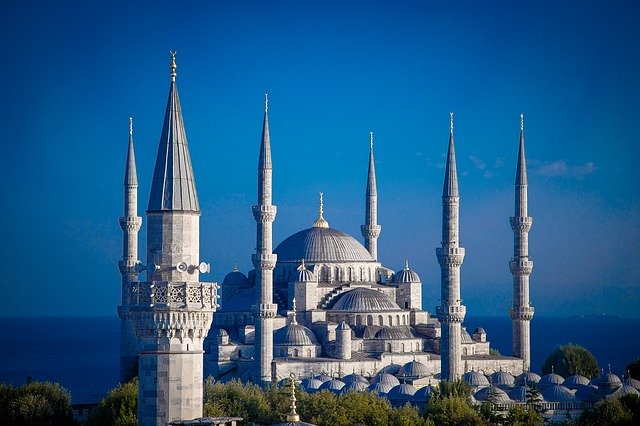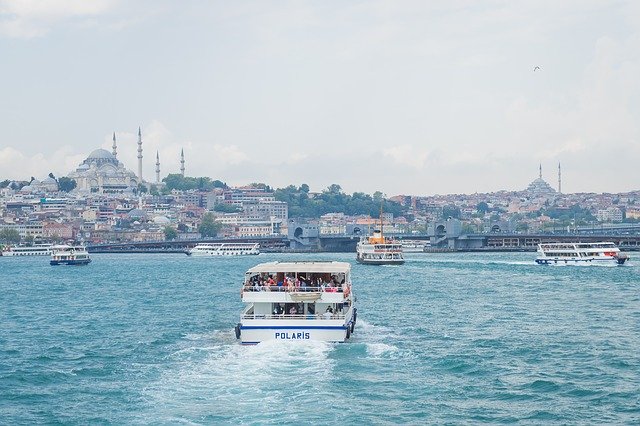History Of Turkey | Ottoman Empire and the Republic of Turkey

The history of the Turks covers a time period of over 4000 years. Turks previously lived in Central Asia around 2000 BC. Afterward, some of them left Central Asia and spread around, setting up numerous states and realms free from one another inside a tremendous region of Asia and Europe. These domains incorporated The Great Hun Empire (set up during the third Century B.C.), the Göktürk Empire (552-740), the Uygur Empire (741-840), the Avar Empire (6-9 Century A.D.), the Hazar Empire (5-10 Century A.D), the Great Seljuk Empire (1040-1157), and numerous others.
Turks in Anatolia:
The Turks began to settle in Anatolia in the mid-eleventh century by the method of nonstop movements and invasions. The Malazgirt triumph in 1071 against the Byzantines actually opened up the doors of Anatolia to the Turks. It is following this date the Turks completely vanquished the entire of Anatolia and set up the Anatolian Seljuk State there (1080-1308). This was the primary Turkish State in Anatolia and was some of the time called, after its capital city of numerous years, the Konya Sultanate.
Footstool AGE 1299–1923:
The Seljuk State quickly declined with the Mongol attack of Anatolia which began in 1243. During the time of the decay of the Anatolian Seljuk state and after its vanishing, numerous Turcoman territories were built up in Anatolia towards the finish of the thirteenth century. One of these was the Ottoman (in Turkish Osmanli) Beylik (like a Principality) named after its originator, a Turkish ruler named Osman in 1299 in the environs of Söğüt in Eskişehir in the northwestern corner of the promontory. The Ottoman Beylik quickly extended all through the fourteenth century and in this manner emerged the Ottoman Empire, which managed over an immense region on three mainlands and went on for a long time until the finish of the First World War.

The Ottomans caught Constantinople in 1453, during the rule of Sultan Mehmet II (1451-1481), and the Byzantine Empire fell, which additionally denoted the finish of the Middle Ages and the start of the New Age. During the rule of Sultan Mehmet II, who expected the title of "The Conqueror," the Ottoman state went into a time of fast advancement which would go on until the finish of the sixteenth century. At its peak, the Ottomans governed over what is today Greece, Albania, Bulgaria, Romania, and Yugoslavia in the Balkans, over all the islands in the Eastern Mediterranean, and over what is today the Middle East. The boundaries of the Empire extended out from the Crimea in the South to Sudan and Yemen in the North and from Iran and the Caspian Sea in the East to Spain in the Southwest and Vienna in the Northwest.
Beginning in the sixteenth century, notwithstanding, the Ottoman Empire gradually lost its financial and military prevalence in correlation over Europe, which had grown quickly with the Renaissance, with its success of new regions and its admittance to crude materials, and with the Industrial Revolution. The Ottoman Empire neglected to adjust to these new turns of events. In this way, the level of influence moved to the European States. The patriot developments that began in the nineteenth century and the self-assurance developments and uprisings of the Balkan countries, upheld by the European forces and Russia, gradually carried the Ottoman Empire to a decay.
WORLD WAR I 1914 – 1918:
The debilitating of the Empire proceeded until World War I. The Ottoman Empire entered the First World War in 1914 on the partnered controls and rose vanquished from the war in 1918, constrained to sign the Mondros Armistice on October 30, 1918. Under the particulars of this Armistice, the regions of the Ottoman Empire were involved by Britain, France, Russia, and Greece. This was the genuine finish of the Ottoman Empire.

A public opposition and freedom development rose as a response to this occupation under the authority of Mustafa Kemal, an Ottoman military officer who activated Anatolia in a mission for Turkish self-assurance and public autonomy. He joined irregular and confused opposition bunches in Anatolia and sorted out them into an organized armed force. Under the administration of Mustafa Kemal—later given the last name Ataturk or "Father of Turks"— the opposition got strong, and the Turks were equipped for battling the war for public freedom.
The Turkish National Liberation War was a push to make another state from the remains of an Empire, which had finished its life. It endured four years (1919-1922) wherein a little multitude of volunteers battled and won a war against the main forces of this time. Ataturk's triumph was military, yet it was additionally strategic. The Turkish military triumph was fixed with a political accomplishment with the marking of the Lausanne Peace Treaty on July 24, 1923. Marked with Great Britain, France, Greece, Italy, and others, the Treaty perceived the creation and worldwide fringes of a Turkish State and ensured its total freedom.
REPUBLIC OF TURKEY:
The Republic was announced on October 29, 1923. Without precedent for hundreds of years, the Turkish public had a ball rule. Mustafa Kemal was chosen as the principal leader of the Republic of Turkey.
As president for a long time, until his demise in 1938, Mustafa Kemal Atatürk presented a wide scope of changes in the political, social, lawful, financial, and social circles that were essentially unrivaled in some other nation.
The primary Grand National Assembly under the administration of Ataturk made another political and legitimate framework dependent on the standards of the parliamentary majority rules system, basic freedoms, public sway and division of forces, private possession and secularism, and the partition of religion and state issues. Another, mainstream training framework was set up, the Arabic letter set was changed into the Latin letter set, and new polite and criminal codes were adjusted from European models. Turkish ladies got equivalent rights under the law, for example, the option to cast a ballot and be chosen for open office, which put Turkey in front of numerous Western countries as far as ladies' privileges. It was an upheaval, unmatched at its time and even today, to align a transcendently Muslim country with Western development and widespread qualities.

